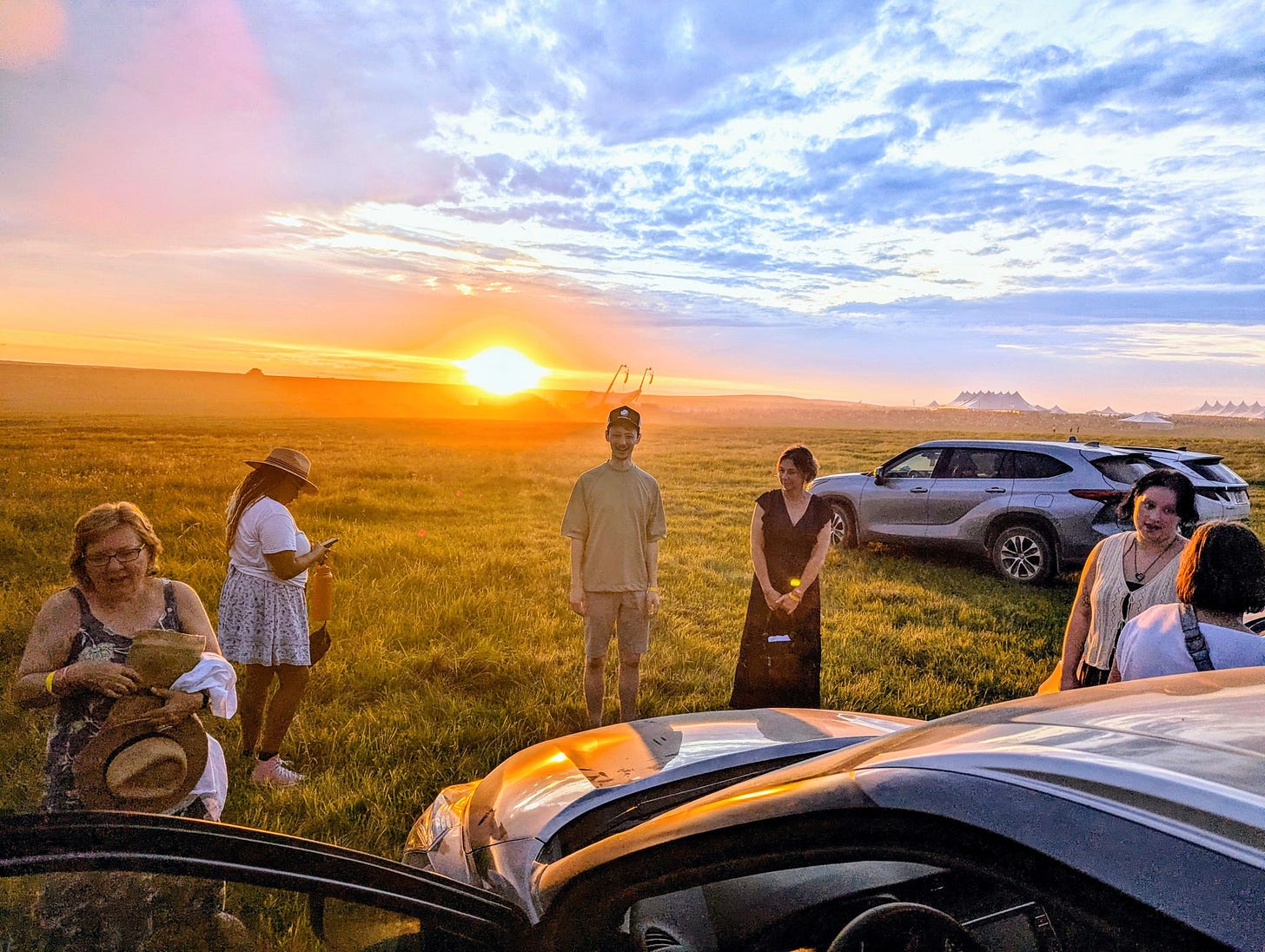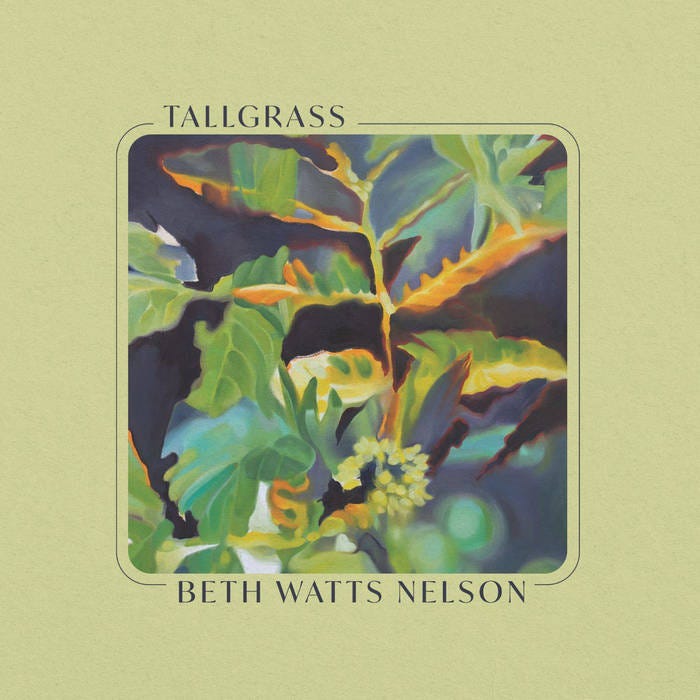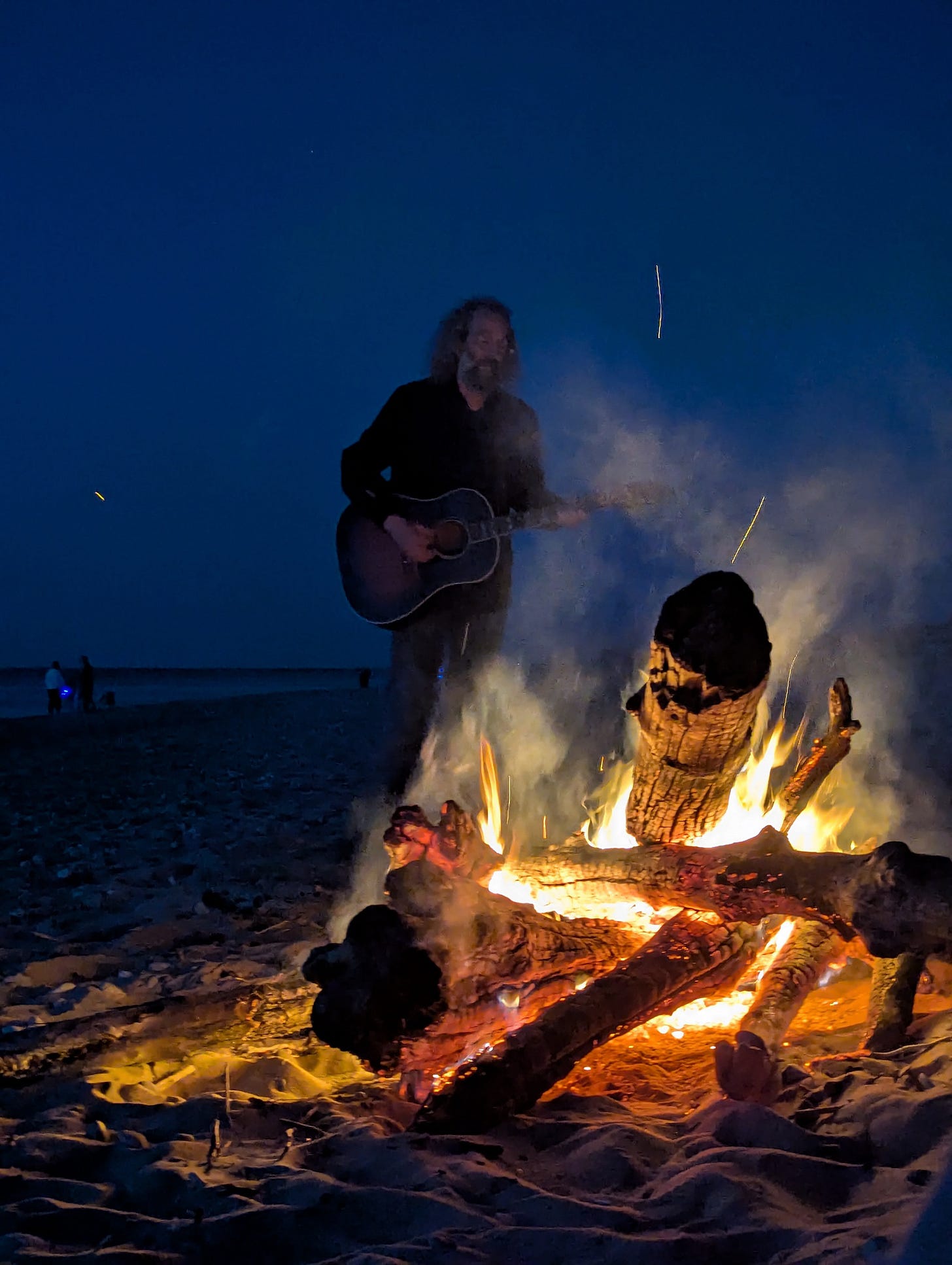Working on a Miracle #4, Stuff That Works
Roadtripping from the Flint Hills to Lake Superior, Listening to Beth Watts Nelson and Chris Buhalis
“Stuff that's real, stuff you feel/The kind of stuff you reach for when you fall” –Guy Clark, “Stuff That Works,” Dublin Blues, 1995
“My non-fiction horror stories prompted many questions. The one I got most was, ‘How are you raising kids in America, knowing all of these terrible things?!’
“I answered, ‘I love America with all my heart and would never live anywhere else. I write about problems in the hope that we can fix them so that our kids won’t have to.’” Sarah Kendzior, The Last American Road Trip, 2025
I’ve just started Kendzior’s The Last American Road Trip. In the opening chapters, I’m finding its beauty almost unbearable, its vision even more crucial. I look forward to writing about it soon.
I need to write about my last American road trip first. It began with a visit to my partner Farrell Hoy Jenab’s Flint Hills home for an address she was asked to give at the final Symphony in the Flint Hills, an event her family worked on the entirety of its 20-year history.
It was a hard, beautiful day for Farrell. She grew up on forty acres just outside Emporia, Kansas with her mother, father, and brother. Six years ago, she lost her mother after a sudden and quick illness. In February, her brother died on a Saturday morning. She had to tell her father that night. Her father was gone Sunday morning. On June 15th, her job was to speak for her family.
Farrell being Farrell, despite enormous grief, she managed to not only do them proud, but she turned the moment into a celebration of her ancestors who left indentured servitude in Pennsylvania to settle the area as well as the indigenous peoples who taught her family how to cultivate and protect the land they called home. The mention of this history drew applause, and it spoke directly to the Hoy family’s role in the area. Beyond being the most influential historian of the region, her father Jim Hoy was a fierce advocate for conservation, including the Indigenous practice of burning the prairie. Her brother Josh’s family received the 2020 Leopold Conservation Award for ranching practices that protected the environment.
Farrell also used the moment to celebrate the community that shaped the event. After the loss of her sister and nephew, Farrell’s mother Cathy Hoy “found solace and purpose in her work with the Symphony,” serving on the board of directors for six years. Apparently, the entire family did a little bit of everything behind the scenes. Farrell again drew applause when she stated her mother’s maxim, “It’s amazing how much you can get done if you don’t need to get credit for it.”
She ended with this: “Our family’s story is woven into the fabric of this organization—not just in titles or roles, but in spirit. And tonight, I stand here not just as their daughter, sister, a mother, an aunt—but as someone who believes, deeply, in the power of this place. The Flint Hills are more than a landscape. They are a living, breathing reminder of what it means to belong—to each other, to the land, and to something greater than ourselves.”
The crowd was visibly moved by this recognition of its own value as a community. Speaking for myself, I was beyond happy and a bit wrecked. Farrell had completed a daunting task in a way that embodied her mother’s (in her daughter’s words) “gracious, elegant presence [that] helped ensure that everyone felt welcome, seen, and loved.”
Though we felt united in the Flint Hills, the country was divided. That same day, about 5 million Americans gathered in 2000 separate places and protested the corporate dictatorship that’s been solidifying in this country for decades. A Minnesota state representative and her husband were assassinated. We soon learned that the Supreme Court ruled our country could deport people it doesn’t think should be here to third countries where these same people seeking refuge certainly don’t belong.
Documentation of the dissolution of our country’s social contract came in a constant stream of notifications as Farrell and I traveled a great loop of the Midwest—the first day stopping in Gas City, Indiana; the second touring Motown in Detroit; the third visiting with friends in Ann Arbor; the fourth heading up to the Canadian border in the Upper Peninsula, where we would stay different places before heading home.
We’d made it to Madison, Wisconsin the following Saturday when the news came on that the United States had bombed Iran. As we’ve seen more times than I can count, once the country goes to war, the people tend to stand down. The leap from a sad Presidential parade one week to considerations of whether the President has solved the Middle East problem this week shows just how thoroughly the American people can be outmaneuvered by a tiny class whose interests lie with the maintenance of the greatest hoarding of wealth in human history.
But we can unite, particularly if we keep the big picture in mind. As someone who believes deeply in free speech, I think most ideological disagreements come second to an understanding that there are those whose interests mean actively destroying our sense of community, our wellbeing, and the wellbeing of the planet. Those in power thrive when we turn on each other. As is the theme of this Substack, I find hope in scattered pieces, and I think there’s a way forward to be found by connecting those fragments.
I hear such hope in Beth Watts Nelson’s three-song EP Tallgrass, a testament to the beauty of the land and the people of the Flint Hills where this story began. Nelson’s delicate banjo and tender vocals and the great Betse Ellis’s understated, yearning fiddle paint a nuanced landscape on the title cut. So much like the shimmering, shifting patterns of the tallgrass itself, this backdrop lends poignant depth to the hardscrabble insights of “Western Wind” and the giddy celebration of home in “Wild Indigo.”
Recorded at the Flint Hills Grimm-Schultz Farmstead in residency with the Volland Foundation, “a place for art and community” located outside Alma, Kansas, Nelson’s accomplishment here reminds me of something Jim Hoy used to say about the Flint Hills itself. It’s quoted in the 2025 Symphony of the Flint Hills Field Journal: “If you want your breath taken away by rugged spectacle, go to the Rocky Mountains or the Grand Canyon; if you want a chance to relax and catch your breath, come to the Flint Hills.” Nelson’s music precisely embodies those virtues.
At the far end of our trip, I felt hope sitting around a fire with friends on the shore of Lake Superior. One of the finest people I know (not incidentally, with one of the finest voices), Chris Buhalis sang pieces of a theater work called North Country Opera, which has been around four decades now, and which resonates with the themes of Watts Nelson’s EP.
https://northcountryopera.org/
The moment that night which stands out most vividly for me—probably because of my familiarity with and affection for the song—was Buhalis’s performance of “Stuff That Works.” Huddled around a campfire with people I loved, I was reminded just what I reach for when I fall. And I think of that moment as I continue to read Kendzior’s book: what works and what doesn’t when it comes to taking care of one another and the land(s) we all love.
Thanks to Meredith Buhalis for the pic (and the hospitality).






Beautiful and true.